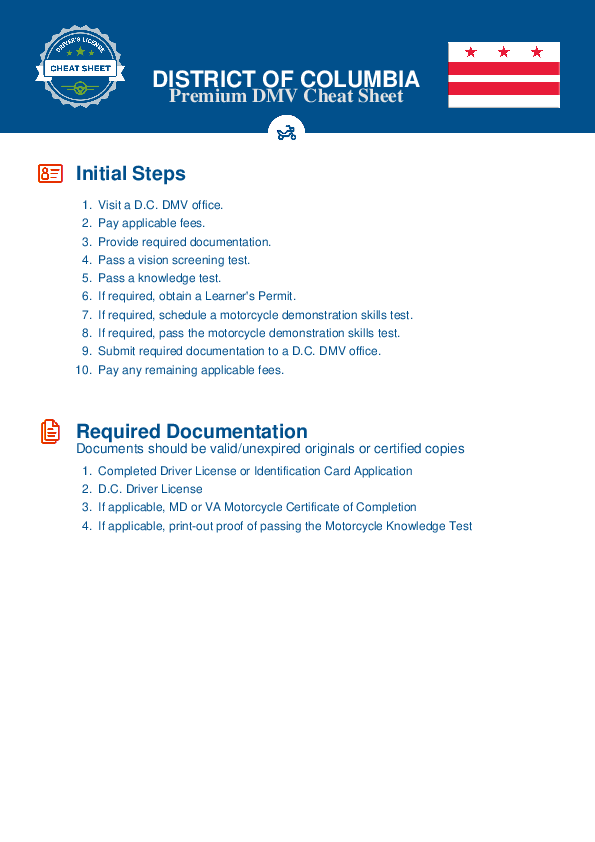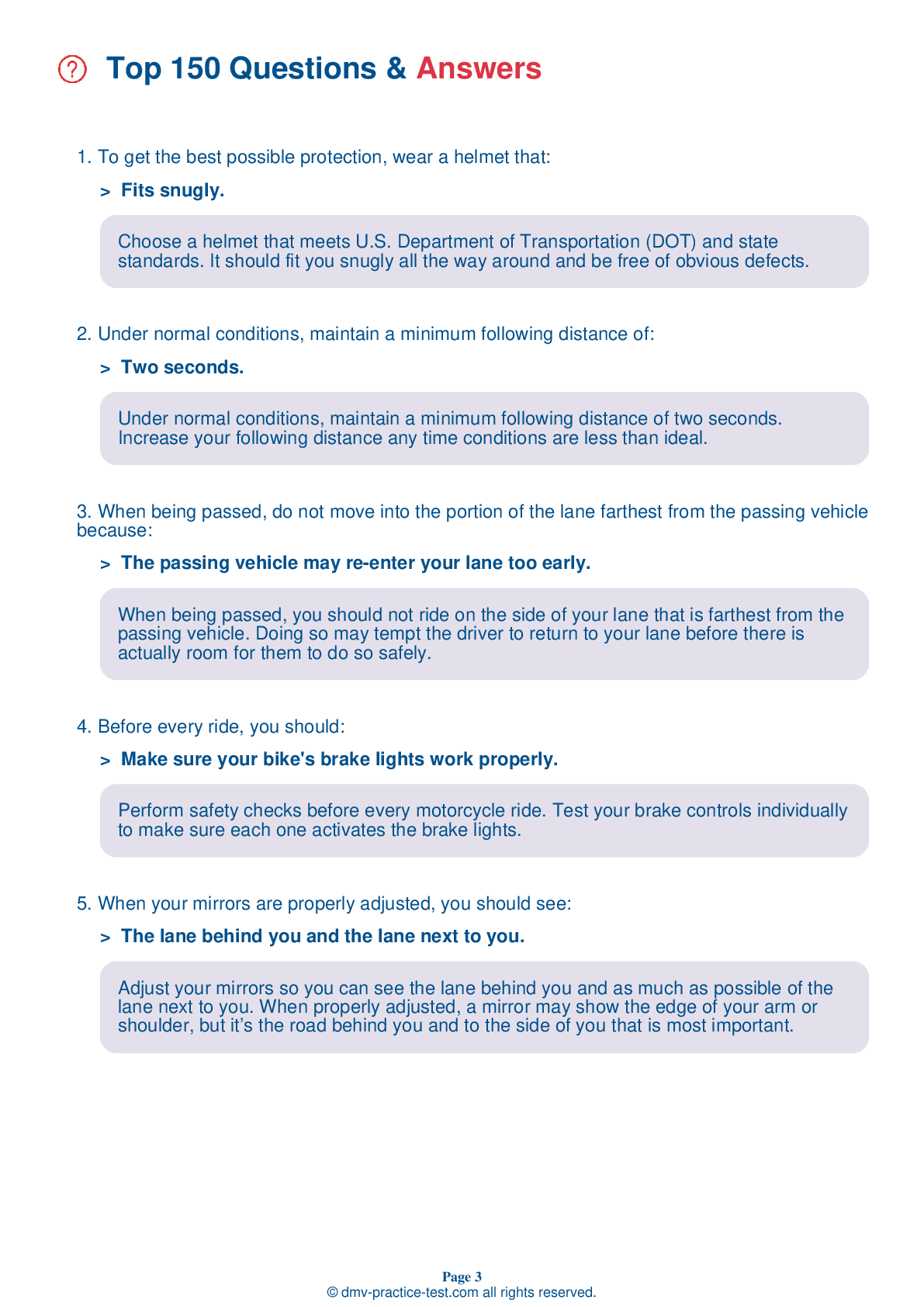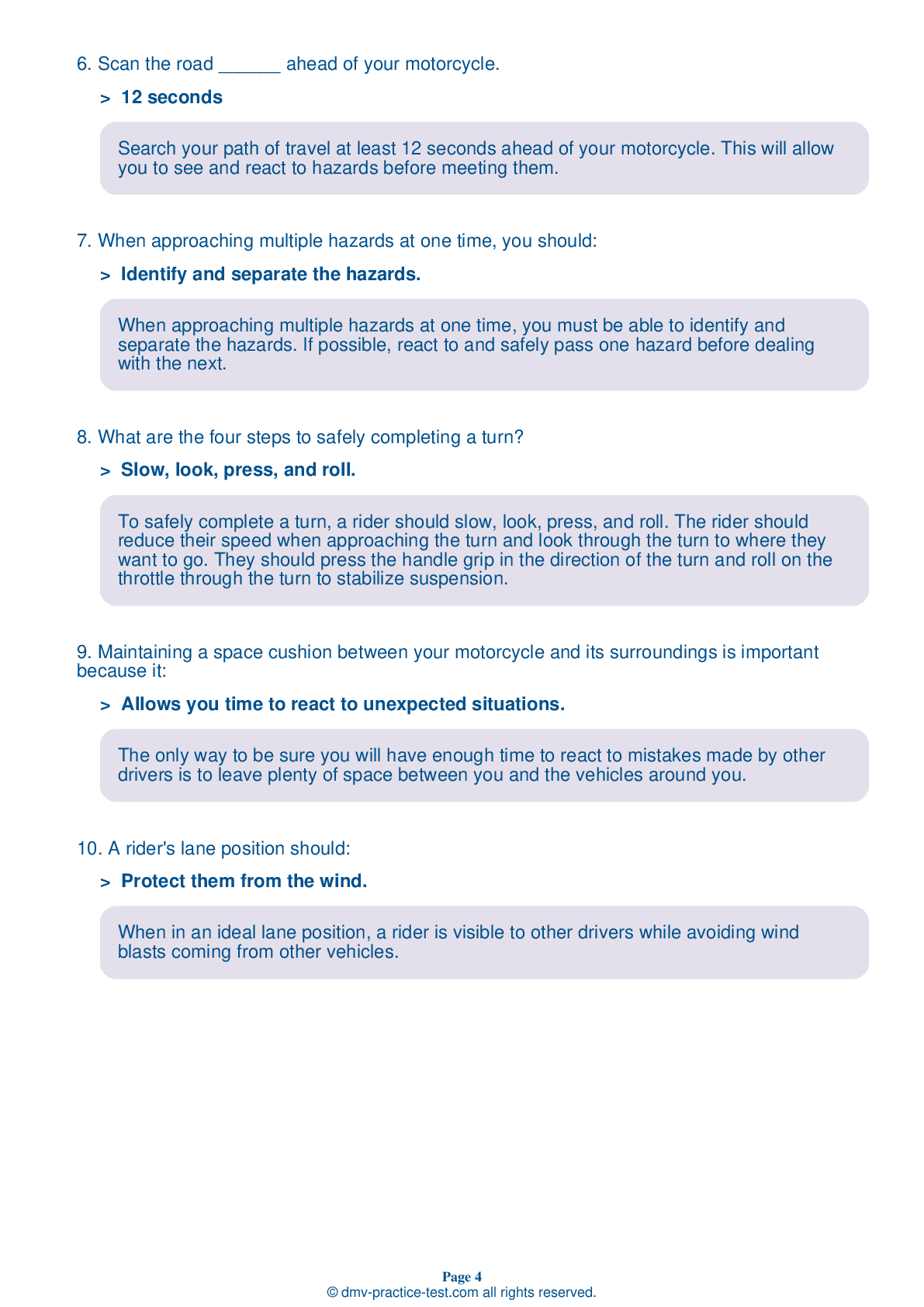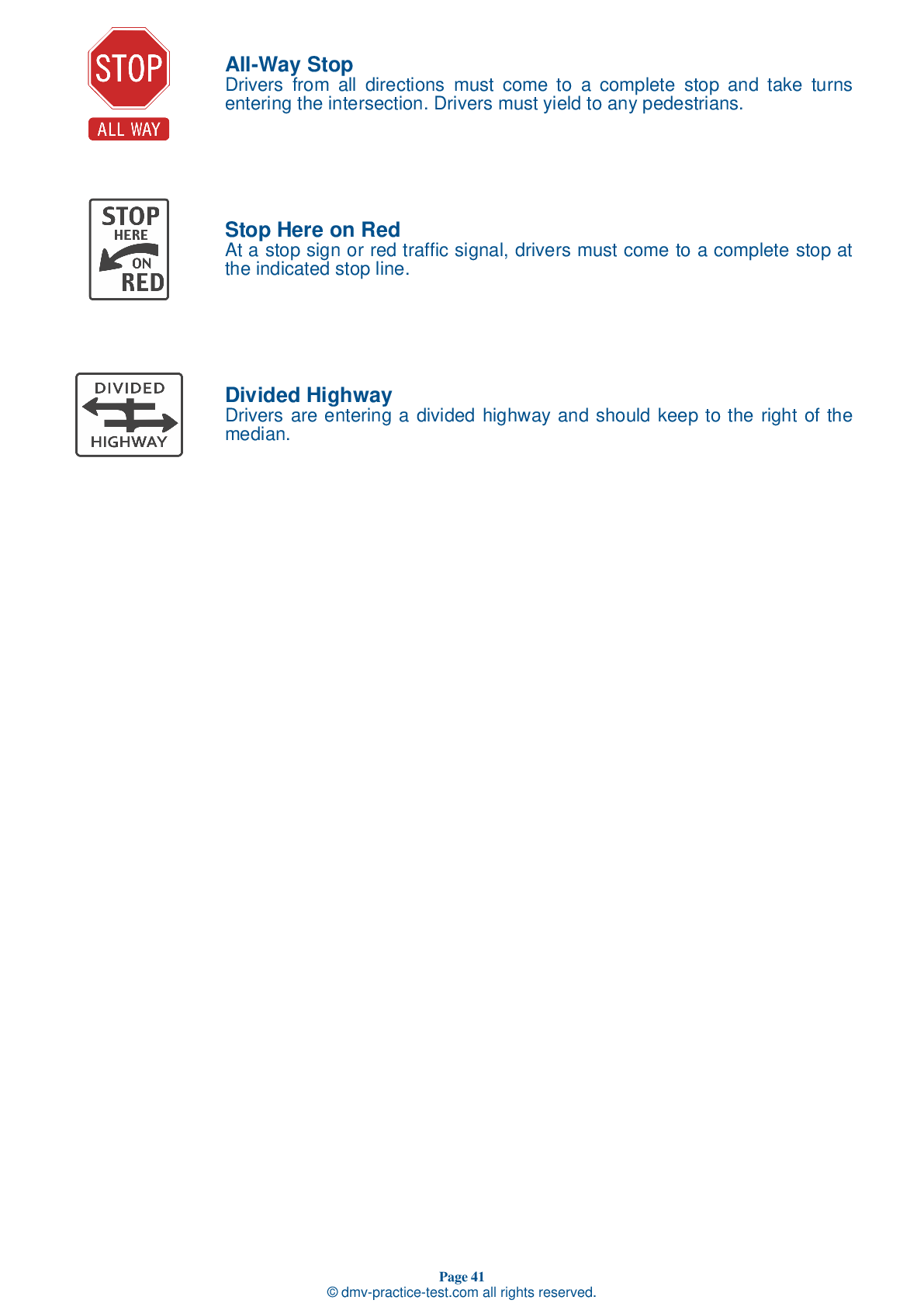Motorcycle Test | License DC 2026 | FREE Online Practice! #11 Page 3 of 4
Take this FREE motorcycle test (license in DC 2026) to check your knowledge of the road rules. To improve your results, download a motorcycle handbook online, study theory, and practice for free on our website. Still worried about how to get a motorcycle license in District Of Columbia in 2026? Check our website for more sample tests, train as much as possible, and boost your grades!
13 . On the freeway, you see a "Merging traffic“ sign. You should:
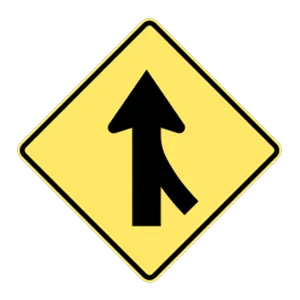
When on a roadway with two or more lanes, you should make room for entering vehicles. If there is no one driving next to you, move over one lane.
14 . The front brake supplies how much of a motorcycle's stopping power?
The front brake of a motorcycle is more powerful than the rear brake. It can provide three-fourths of the bike's total stopping power.
15 . A proper lane position should do all of the following, except:
A properly chosen lane position should provide a number of benefits, including an increased ability to see others and to be seen. It should help you avoid wind blasts, other drivers' blind spots, and surface hazards. Your lane position should discourage other drivers from trying to share your lane and provide you with an escape route, should a hazard arise.
16 . When riding at night, you should:
Because distances are more difficult to judge in the dark than in daylight, be sure to reduce your speed and increase your following distance when riding at night. Use your high beam any time you are not meeting or following another vehicle.
17 . Which of the following is not considered protective clothing for a motorcyclist?
You should wear appropriate protective clothing when riding. Protective garments include sturdy pants and jackets that entirely cover your arms and legs, boots or heavy shoes that cover and support your ankles, and sturdy gloves.
18 . This road sign means:
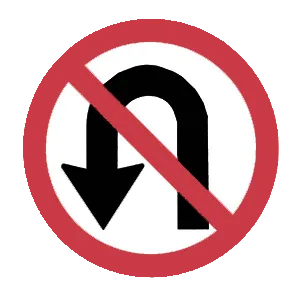
This signs indicate that U-turns are prohibited in the location where it is posted.
See the exact questions that will be on the 2026 District Of Columbia DMV exam.
99.2% of people who use the cheat sheet pass the FIRST TIME
Jeneen was tired of paying $5/gallon. She got herself a scooter that required the motorcycle license. She studyed the motorcycle test cheat sheet and passed her test the next day!
Christopher tells us how he knew nothing prior to obtaining the motorcycle study guide, and he only got one question wrong because he clicked on the wrong answer by mistake.
